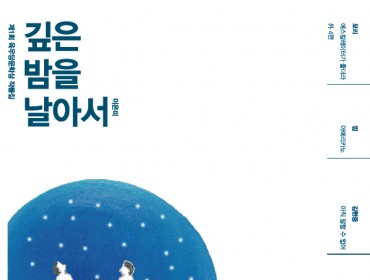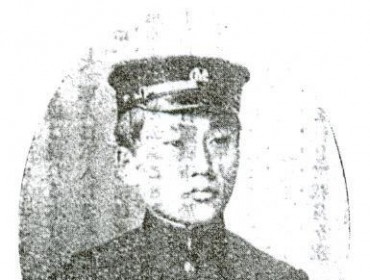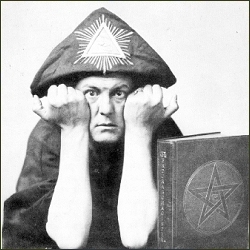By Iwazaru

The recent news of J. D. Salinger’s death at his isolated farmhouse in Cornish, New Hampshire resumed the conversation about what the hell he’d been up to, why he vanished from the outside world more than 50 years ago and how relevant Holden Caulfield is today. The first two questions may finally get answered after all this time and, one would hope, the last one can be answered without peering inside any of Salinger’s strongboxes. Just taking a look at the comments of the iGeneration is a good place to start, which made me think about former students I had who read and wrote about the book.
Some years ago I decided to put “The Catcher in the Rye” on my suggested reading list for foreign language high school students here, despite some reservations about how relevant it would be. Some other books on the list include “The Things They Carried” by Tim O’Brien, “The New York Trilogy” by Paul Auster, “The Outsiders” by S.E. Hinton, “Night” by Elie Wiesel, “The Stranger” by Camus, “Into the Wild” by Jon Krakauer and “Frankenstein” by Mary Shelley.

The assignment has always been quite open: read the book actively, do some research on themes, characters, symbols and so on, relate the book to something in your life and use excerpts in the essay you write. During each semester I encourage questions from students and offer explanation if needed. Mostly, I let the students meet the book on their own terms with the basic and necessary tools of active reading.
At the end of the semester I have a stack of essays to peruse ranging from the weak to the enlightening. And what I most hope for is that the students have made some connection, have taken some step beyond, have seen something not seen before, have opened up something, have had anything unleashed and that, perhaps, the book has been as Kafka said, “…an ice-axe to break the seas frozen inside our soul.” I’ve been told it’s asking a bit too much and sometimes, as I’m reading through an essay about a book I’m confident the student really didn’t read or just got a quick hit on Spark notes to get the nuts and bolts, the idea that there’s futility in it all rises from the page. Thankfully this is infrequent and I more often come across the unorthodox produced by students unversed in the intricacies of the book gleaned from formal literature classes— Just a kid reading a book, trying to figure out what it’s all about minus the teacher and the school.
In a powerful remembrance piece by Lillian Ross in The New Yorker she shares some private reflections on her friendship with Salinger and quotes him as having once said, “I think I despise every school and college in the world, but the ones with the best reputation first.” This made me think that he’d probably have no time for any of this. Perhaps he’d hate Korean prep schools most of all for what they deprive adolescents of and the fact that Holden wouldn’t be able to go from one to another; there are few second chances here. If you want to be forgotten, it’s not that hard.

Yet, I’d like to think that he’d marvel at some of the potential in the writing, the potential in the students and the fact that most of them whom read “Catcher” “… wished the author that wrote it was a terrific friend…[and] you could call him up on the phone whenever you felt like it.” It is sad that none of those conversations can happen but admirers of “Catcher” are left with the deep hope that we can hear more from Salinger beyond the grave. And that hope is fed by Katie Zezima’s story in the New York Times where she says Salinger “wrote a thank-you note to the fire department after it extinguished a blaze and helped save his papers and writings,” and Joyce Maynard — a Yale freshman who dropped out in 1972 to begin a 10-month relationship with the middle-aged Salinger — who said there at least two novels locked away in his farm.
Lastly, what follow are parts of two essays written by former students who found something that was worth the reading and the writing, and I am sure are left wondering if Salinger believed like Holden that “I hope to hell when I do die somebody has sense enough to just dump me in the river or something. Anything except sticking me in a goddam cemetery. People coming and putting a bunch of flowers on your stomach on Sunday, and all that crap. Who wants flowers when you’re dead? Nobody.”
The Catcher in the Rye
By Jun Yim
J.D. Salinger’s “Catcher in the Rye” is about a troubled teenager named Holden Caulfield. He has a lot of problems adapting to the real world and is a real troublemaker. Although he is quite talented in the subject of English, he has managed to fail four classes out of five. From this aspect, he is very different from the students of Daewon Foreign Language High School. Students at Daewon study hard and the majority of them receive high grades. However, despite the difference, when I was reading the book, I got the feeling that I wanted to be like Holden Caulfield. I envy how he doesn’t worry about being graded and how he has the courage to stand up against authority.
However, Holden is not liberated from all his problems. He always struggles with the fact that everyone has to grow up. The book’s title has relation to this problem— Holden’s constant concern about the loss of innocence. He does not want children to grow up because he feels that all, well, most adults are corrupt. This can be seen in the part where Holden tries to erase profane words from the walls of the elementary school where his younger sister goes.
For me, when I see politicians on TV, I feel disgusted with their endless lies and trickery. When I see drunken business-men late at night in the streets, I feel pity for them. When I see adults cursing the world for providing such a low quality environment but not doing anything about it, I feel shame. I wish to be an adult who truly recognizes the flaws of the world and strains enthusiastically to mend those flaws. I wish to be an adult who can make a difference by leading all grown-ups to regain their long ago lost innocence.
I Am a Rock
By Jang Kyoo-eun
“Don’t judge a book by its cover” is probably one the most overused and trite sayings of all time. Yet, with the book, the Catcher in the Rye, much can be inferred by just observing its cover. There is no summary or any praising blurbs on the back cover; there is a blank page at the end of the book where the author’s biography is supposed to be. However, the deprivation of these qualities leads me to a new understanding. Perhaps J.D Salinger, much like his protagonist Holden Caulfield, wished to set himself aside from other writers by refusing to follow conventions. Or perhaps Salinger just didn’t want to “have any goddam stupid useless conversations” (p.198) with any of his readers, which may explain his seclusion as a writer and why he kept most of his work from ever being published. Still, it would be fair to say that A Catcher in the Rye is one of his finest works. It is a story of Holden Caulfield’s journey towards finding his self, the obstacles he had to overcome, and about the unfeeling society that shunned him.
Holden hates the movies, athletes and expensive suitcases— yet he loves his red hunting hat, the Museum of Natural History, and Phoebe, his kid sister. When asked about his dream, he vaguely replies, “to become a catcher in the rye.” Holden has flunked out of two schools and has been kicked out yet again because he has failed to “apply himself.” As the captain of the fencing team, he leaves all the fencing equipment on the subway while going to a meet. Though he is 16, Holden is a heavy drinker and tries to make passes at women much older than he. In other words, Holden Caulfield is, without a doubt, an idiosyncratic, irresponsible, and incorrigible teen without any sense of direction or set of values in life.
However, as the story progresses, this image slowly disappears. Holden tries to connect to and feel accepted by the world around him. Though he calls his roommate Stradlater and Stradlater’s athlete friends “athletic bastards that stick together” (p.43), Holden tries to be accepted by Stradlater by doing his English homework for him while he goes out on a date with Jane, Holden’s childhood friend. Also, while he calls the Wicker Bar on 54th Street a place where “the phonies are coming in the widow” (p. 141), it is that bar where he arranges a meeting with an old friend. When Holden meets two nuns on the train, we see his soft side. Though he makes them a generous contribution of $10, he wishes he could have given more. When they talk about Romeo and Juliet, Holden mentions he felt more remorse for the death of Mercutio, a minor character in the book, than for the deaths of Romeo and Juliet, showing that he also cares for the lesser and the weak. While looking at the nuns’ suitcases, he is reminded of the time he deliberately hid his own expensive suitcases that “were too new and bourgeois” (p.108) in fear of giving his roommate humiliation for possessing mediocre ones.
Yet, Holden is horribly rejected by the people around him. Stradlater flies into a rage when he sees the painstakingly written English composition because it is about a baseball mitt. Stradlater fails to see the importance it holds for Holden, and says it has anything to do with a descriptive essay, the original assignment. When Holden roams around in the city, he continuously tries to find companionship and tries to call up old friends. However, Holden’s wild demeanor and the inability to control his tongue make every meeting turn out to be a disaster. Schools discard Holden because he fails to keep up with their standards. This is why Phoebe is Holden’s favorite person: she is the only person in his life that does not judge him but accepts him for the way he is.
Disappointed and disheartened by the world that rejected him, Holden becomes bitter and begins to feel animosity towards anything he sees as superficial, or “phony.” He then feels it is his job to keep children from experiencing rejection or disillusionment from the superficial world around them. He wants to help them sustain their innocence, and thus sets out to become the heroic “Catcher in the Rye.” However, it seems to me that Holden is actually trying to catch himself. He knows that he has nowhere to go. When he finds that the ducks at Central park disappear during the winter, he is worried that he too may end up “riding for some terrible, terrible fall” (p.186) and insignificantly disappear from society. Thus, becoming the “Catcher” is actually Holden’s attempt to catch himself.
Holden also seeks stability in his life, which explains why he likes the museum so much “the best thing in that museum was that everything stayed right where it was” (p.121), yet refuses to go inside again after he had gone inside as a child. “You could go there a hundred thousand times and…nobody would be different. The only thing that would be different would be you.” (p.121). To Holden, the Museum of Natural History represented the unchanging, manageable world he wished to live in. He refuses to go back inside because he is afraid he would realize how he much had changed. Therefore, becoming a “Catcher” is also an excuse for Holden to resist change and development.
The beginning of the novel shows that Holden is currently in a sanitarium. This may make readers skeptical of the reliability and the sanity of the speaker. Also, because Holden unfolds his story as if he were conversing with the reader instead of a psychiatrist, readers may try to become even more cautious about what he has to say. Still, I think Holden tries to tell everything the way it is. Contrary to what many critics may believe, Holden did eventually stop “riding for the fall.” Near the end of the book, while watching Phoebe ride a “carrousel” (It’s interesting to note that he never uses the English spelling of the word), Holden says, “The thing with kids is…you have to let them do it, and not say anything. If they fall off, they fall off, but its bad if you say anything to them” (p.211). Here, he realizes his dream of becoming a “catcher in the rye,” is useless; it is up to the individual to pick himself up and move on. As Holden realizes it is time to stop running away from reality, he is so overwhelmed that he cries. “I felt so damn happy all of the sudden…I was damn near bawling” (p.213). Holden found what he had been searching for: the motivation to move on and grow.
Unfortunately, Holden is still at a sanitarium at the end of the novel. I see Holden’s parents as the biggest factor in shaping his demise. When Holden’s younger brother dies, Holden breaks all the windows in the garage. His parents do not see this behavior as anguish, but rather take it as insanity. Instead of trying to communicate with him, they ship him off to various schools and just ship him to another when he fails to adapt to the current one. They bottle up their feelings about Allie’s death which disturbs Holden even more. When Holden sneaks into his house in the middle of the night to see Phoebe, he makes it clear he does not want to see his parents. His parents also do not wish to deal with Holden, and eventually send him to a mental hospital, the one place where Holden cannot get kicked out of. Therefore, just when Holden thought he had found a way to live, he was shattered by society once again. Sadly, this is not an unexpected twist; there are some elements in the book that foreshadow his demise, such as the time Holden shatters the “Shirley Beans” record he had bought for Phoebe, and imagines his own funeral.
The Catcher in the Rye reminded me a great deal of the song “I am a Rock” by Simon and Garfunkel. It is one of my dad’s all time favorites; he loved to play it in the car when I was a kid, especially on rainy days.
A winter’s day
In a deep and dark December;
I am alone,
Gazing from my window to the streets below
On a freshly fallen silent shroud of snow.
I am a rock,
I am an island.
I’ve built walls,
A fortress deep and mighty,
That none may penetrate.
I have no need of friendship; friendship causes pain.
It’s laughter and it’s loving I disdain.
I am a rock,
I am an island.
…
And a rock feels no pain;
And an island never cries.
This song reminds me of Holden’s isolation throughout the book. The line “I have no need of friendship; friendship causes pain, its laughter and its loving I disdain” sounds similar to Holden living in denial. Though he is actually lonesome on the inside, Holden tries to conceal his wounds by being spiteful and building invisible fortresses around him. The song and the novel share another small but significant similarity; they are both set in the depths of “deep, dark December.”
This novel ends leaving the reader with a sense of emptiness and perplexity because there is no real resolution or climax as people would expect from most novels. Instead, Salinger leaves his readers to guess what happens to Holden, without giving any hints to Holden’s days ahead.
Still, one thing remains certain. Deep down in all of us lies the awkward kid that can’t stand phonies but likes visiting the museum. Pieces of Holden are in every one of us. Not all of us may go to the extremes like Holden did in this book. Still, his story remains relevant today; it is a distorted yet typical mosaic of the painful transition between adolescence and adulthood— a path that everyone must cross. He represents the hot-blooded teen full of hormones and ideals, the humiliated kid picked last for gym class, and that shy, daydreaming kid that sits alone in the back of the classroom, looking outside the window now and then, anxious to join the others.






